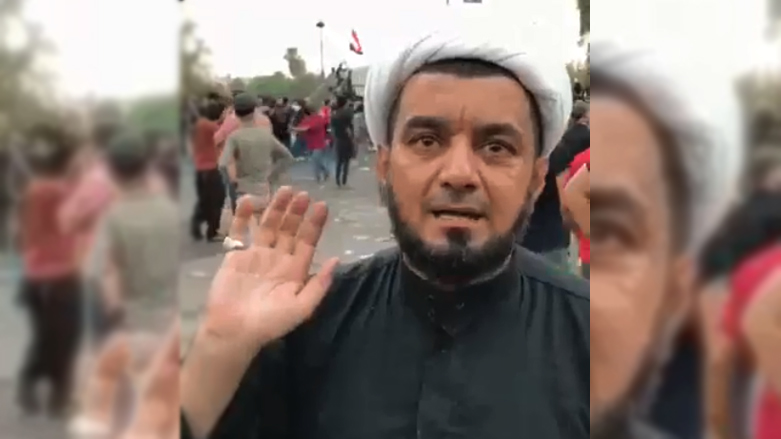Leading figure of Iraq’s Basra protests assassinated days after renewed demonstrations

ERBIL (Kurdistan 24) – Unknown gunmen assassinated one of the most well-known Iraqi faces from the protests in the oil-rich southern Shia heartland of Basra, security sources and witnesses said on Sunday.
Sheikh Wissam al-Gharawi, a young Shia cleric, was assassinated Saturday in front of his home in the district of al-Muwafaqiya, located in the center of Basra, southern Iraq.
Gharawi, easily recognized in the crowds with his white turban, was a staunch supporter of the Basra protests that raged during the summer months over poor government services and infrastructure, the lack of electricity, high unemployment, and widespread corruption among state institutions.
There was no immediate claim of responsibility by any group.
Gharawi’s assassination sends a dangerous message to other key figures and participants of the Basra protests.
Over the past few months, several activists have been killed, with security forces reportedly unable to find those responsible. As a result of the inaction, rumors have started to spread accusing pro-Iran militia groups of conducting the assassinations, especially since many of Shia factions’ headquarters in southern and central Iraqi cities were burned down by protesters, including the Iranian Consulate in Basra.
“Sheikh Gharawi was assassinated after demonstrations started up again” in Basra, with calls for better public services were renewed in the past few days, a security source told Kurdistan 24.
Following the attack, Gharawi was transferred to a nearby military hospital in an attempt to save his life, but the young cleric died of his injury on his way there, a medical source said.
“Several bullets were extracted from his body.”
Gharawi was in favor of issuing religious fatwas urging resident of Basra to take up arms against local authorities to “secure their rights by force,” one of his friends told Kurdistan 24.
“These provocative calls to take up arms apparently killed him,” activists on Iraqi social media networks posited.
During the summer protests in Basra, Gharawi appeared in a video claiming that a number of clerics would eventually issue a fatwa permitting the people to take up arms against the government.
It is unclear whether he was involved in the protests that erupted a few days ago where tires were set on fire, with people expressing their disappointment in the Iraqi authorities’ efforts to address outstanding issues despite the formation of a new federal government of Iraq, headed by Adil Abdul-Mahdi.
Editing by Nadia Riva
